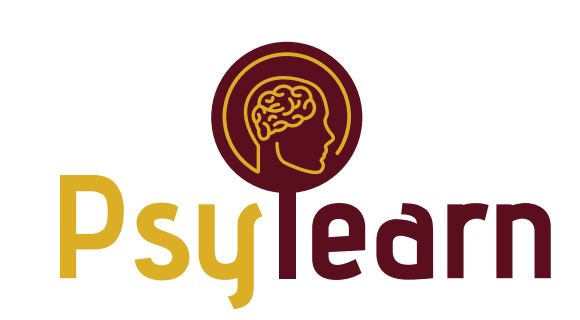Welcome To Psylearn
- info@psylearnsupport.com

- +91 9961613331 / +91 7034403807
Psychology Optional Paper – I Syllabus
Foundations of Psychology
1. Introduction:
- Definition of Psychology;
- Historical antecedents of Psychology and trends in the 21st century;
- Psychology and scientific methods;
- Psychology in relation to other social sciences and natural sciences;
- Application of Psychology to societal problems.
2. Methods of Psychology:
- Types of research: Descriptive, evaluative, diagnostic and prognostic.
- Methods of Research: Survey, observation, case-study and experiments;
- Characteristics of experimental design and non-experimental design, Quasi-experimental designs; Focussed group discussions, brain storming, grounded theory approach.
3. Research Methods:
- Major steps in Psychological research (problem statement, hypothesis formulation, research designs, sampling, tools of data collection, analysis and interpretation and report writing)
- FundamMethods of data collection (interview, observation, questionnaire);
- Research designs (ex-post facto and experimental);
- Application of statistical technique (t – test, two way ANOVA correlation, regression and factor analysis);
- Item response theory.
4. Development of Human Behaviour:
- Growth and development; Principles of development,
- Role of genetic and environmental factors in determining human behaviour;
- Influence of cultural factors in socialization;
- Life span development – Characteristics, development tasks, promoting psychological well-being across major stages of the life span.
5. Sensation, Attention and Perception:
- Sensation: concepts of threshold, absolute and difference thresholds, signal-detection and vigilance;
- Factors influencing attention including set and characteristics of stimulus;
- Definition and concept of perception, biological factors in perception;
- Perceptual organization-influence of past experiences, perceptual defence-factors influencing space and depth perception, size estimation and perceptual readiness;
- The plasticity of perception;
- Extrasensory perception;
- Culture and perception,
- Subliminal perception.
6. Learning:
- Concept and theories of learning (Behaviourists, Gestaltalist and Information processing models);
- The Processes of extinction, discrimination and generalization;
- Programmed learning, probability learning, self-instructional learning, concepts;
- Types and the schedules of reinforcement, escape, avoidance and punishment, modeling and social learning.
7. Memory:
- Encoding and remembering;
- Short term memory, Long term memory, Sensory memory, Iconic memory, Echoic memory:
- The Multistore model, levels of processing; Organization and Mnemonic techniques to improve memory;
- Theories of forgetting: decay, interference and retrieval failure: Metamemory;
- Amnesia: Anterograde and retrograde.
8. Thinking and Problem Solving:
- Piaget’s theory of cognitive development;
- Concept formation processes; Information processing, Reasoning and problem solving, Facilitating and hindering factors in problem solving,
- Methods of problem solving: Creative thinking and fostering creativity; Factors influencing decision making and judgment;
- Recent trends.
9. Motivation and Emotion:
- Psychological and physiological basis of motivation and emotion;
- Measurement of motivation and emotion;
- Effects of motivation and emotion on behaviour; Extrinsic and intrinsic motivation;
- Factors influencing intrinsic motivation;
- Emotional competence and the related issues.
10. Intelligence and Aptitude:
- Concept of intelligence and aptitude,
- Nature and theories of intelligence – Spearman, Thurstone, Gullford Vernon, Sternberg and J.P; Das;
- Emotional Intelligence, Social intelligence, measurement of intelligence and aptitudes,
- concept of IQ, deviation IQ, constancy of IQ; Measurement of multiple intelligence;
- Fluid intelligence and crystallized intelligence.
11. Personality:
- Definition and concept of personality;
- Theories of personality (psychoanalytical, sociocultural, interpersonal, developmental, humanistic, behaviouristic, trait and type approaches);
- Measurement of personality (projective tests, pencil-paper test);
- The Indian approach to personality;
- Training for personality development;
- Latest approaches like big 5 factor theory;
- The notion of self in different traditions.
12. Attitudes, Values and Interests:
- Definition of attitudes, values and interests;
- Components of attitudes; Formation and maintenance of attitudes;
- Measurement of attitudes, values and interests;
- Theories of attitude change; Strategies for fostering values;
- Formation of stereotypes and prejudices; Changing others behaviour;
- Theories of attribution;
- Recent trends.
13. Language and Communication:
- Human language – Properties, structure and linguistic hierarchy, Language acquisition- predisposition, critical period hypothesis;
- Theories of language development – Skinner and Chomsky; Process and types of communication – effective communication training.
14. Issues and Perspectives in Modern Contemporary Psychology:
- Computer application in the psychological laboratory and psychological testing;
- Artificial intelligence; Psychocybernetics;
- Study of consciousness-sleep-wake schedules; dreams, stimulus deprivation, meditation, hypnotic/drug induced states;
- Extrasensory perception; Intersensory perception Simulation studies.
1. Introduction:
- Definition of Psychology;
- Historical antecedents of Psychology and trends in the 21st century;
- Psychology and scientific methods;
- Psychology in relation to other social sciences and natural sciences;
- Application of Psychology to societal problems.
2. Methods of Psychology:
- Types of research: Descriptive, evaluative, diagnostic and prognostic.
- Methods of Research: Survey, observation, case-study and experiments;
- Characteristics of experimental design and non-experimental design, Quasi-experimental designs; Focussed group discussions, brain storming, grounded theory approach.
3. Research Methods:
- Major steps in Psychological research (problem statement, hypothesis formulation, research designs, sampling, tools of data collection, analysis and interpretation and report writing)
- Fundamental versus applied research;
- Methods of data collection (interview, observation, questionnaire);
- Research designs (ex-post facto and experimental);
- Application of statistical technique (t – test, two way ANOVA correlation, regression and factor analysis);
- Item response theory.
4. Development of Human Behaviour:
- Growth and development; Principles of development,
- Role of genetic and environmental factors in determining human behaviour;
- Influence of cultural factors in socialization;
- Life span development – Characteristics, development tasks, promoting psychological well-being across major stages of the life span.
5. Sensation, Attention and Perception:
- Sensation: concepts of threshold, absolute and difference thresholds, signal-detection and vigilance;
- Factors influencing attention including set and characteristics of stimulus;
- Definition and concept of perception, biological factors in perception;
- Perceptual organization-influence of past experiences, perceptual defence-factors influencing space and depth perception, size estimation and perceptual readiness;
- The plasticity of perception;
- Extrasensory perception;
- Culture and perception,
- Subliminal perception.
6. Learning:
- Concept and theories of learning (Behaviourists, Gestaltalist and Information processing models);
- The Processes of extinction, discrimination and generalization;
- Programmed learning, probability learning, self-instructional learning, concepts;
- Types and the schedules of reinforcement, escape, avoidance and punishment, modeling and social learning.
7. Memory:
- Encoding and remembering;
- Short term memory, Long term memory, Sensory memory, Iconic memory, Echoic memory:
- The Multistore model, levels of processing; Organization and Mnemonic techniques to improve memory;
- Theories of forgetting: decay, interference and retrieval failure: Metamemory;
- Amnesia: Anterograde and retrograde.
8. Thinking and Problem Solving:
- Piaget’s theory of cognitive development;
- Concept formation processes; Information processing, Reasoning and problem solving, Facilitating and hindering factors in problem solving,
- Methods of problem solving: Creative thinking and fostering creativity; Factors influencing decision making and judgment;
- Recent trends.
9. Motivation and Emotion:
- Psychological and physiological basis of motivation and emotion;
- Measurement of motivation and emotion;
- Effects of motivation and emotion on behaviour; Extrinsic and intrinsic motivation;
- Factors influencing intrinsic motivation;
- Emotional competence and the related issues.
10. Intelligence and Aptitude:
- Concept of intelligence and aptitude,
- Nature and theories of intelligence – Spearman, Thurstone, Gullford Vernon, Sternberg and J.P; Das;
- Emotional Intelligence, Social intelligence, measurement of intelligence and aptitudes,
- concept of IQ, deviation IQ, constancy of IQ; Measurement of multiple intelligence;
- Fluid intelligence and crystallized intelligence.
11. Personality:
- Definition and concept of personality;
- Theories of personality (psychoanalytical, sociocultural, interpersonal, developmental, humanistic, behaviouristic, trait and type approaches);
- Measurement of personality (projective tests, pencil-paper test);
- The Indian approach to personality;
- Training for personality development;
- Latest approaches like big 5 factor theory;
- The notion of self in different traditions.
12. Attitudes, Values and Interests:
- Definition of attitudes, values and interests;
- Components of attitudes; Formation and maintenance of attitudes;
- Measurement of attitudes, values and interests;
- Theories of attitude change; Strategies for fostering values;
- Formation of stereotypes and prejudices; Changing others behaviour;
- Theories of attribution;
- Recent trends.
13. Language and Communication:
- Human language – Properties, structure and linguistic hierarchy, Language acquisition- predisposition, critical period hypothesis;
- Theories of language development – Skinner and Chomsky; Process and types of communication – effective communication training.
14. Issues and Perspectives in Modern Contemporary Psychology:
- Computer application in the psychological laboratory and psychological testing;
- Artificial intelligence; Psychocybernetics;
- Study of consciousness-sleep-wake schedules; dreams, stimulus deprivation, meditation, hypnotic/drug induced states;
- Extrasensory perception; Intersensory perception Simulation studies.

